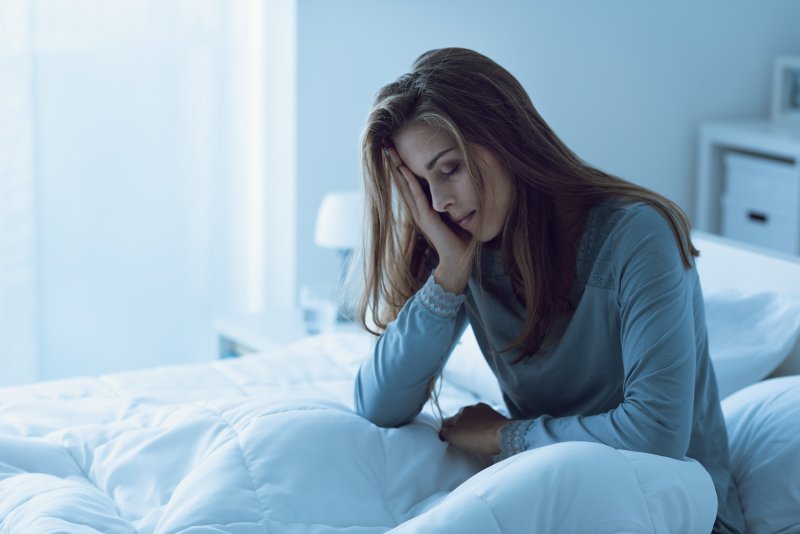
With COVID-19 still putting stress on the healthcare industry and posing a very real threat to older people and those with pre-existing conditions, it’s important to pay attention to your own health and recognize the factors that could be putting you – or the people around you – at risk. In addition to maintaining good hygiene and exercising social distancing, you should also be paying attention to the quality of your rest; an untreated sleep disorder such as sleep apnea in Topeka could have a more devastating effect on your body than you realize!
What Happens to the Body When You Have Sleep Apnea?
People who have sleep apnea repeatedly stop breathing during the night (normally because their airways are blocked by relaxed muscles or tissues in the mouth or throat). The body will need to wake up to resume breathing; naturally, repeated awakenings will leave you feeling exhausted in the morning. Furthermore, the effects of untreated sleep apnea in Topeka can lead to various health issues, such as raised blood pressure, an increased risk of heart problems, and asthma. Notably, a lack of sleep will weaken your immune system since your body will not be producing enough of certain proteins that play an important role in fighting infection or inflammation.
Will Sleep Apnea Increase Your Risk for COVID-19?
Scientists and doctors are still in the early stages of research for COVID-19, but already there is a link between a higher risk of coronavirus infection and specific risk factors linked to sleep apnea. For example, patients over the age of 65 are more likely to suffer from sleep apnea and are more susceptible to COVID-19 in general; furthermore, the virus has a higher mortality rate among patients with underlying health conditions. And of course, a weaker immune system brought about by sleep apnea will only leave you more vulnerable to infections of any kind.
What to Do If You Have Sleep Apnea
Once sleep apnea has been identified via a sleep study, you can start taking the necessary steps to treat it. This often means wearing a special oral appliance that opens the airway to maintain a steady flow of oxygen; you can wear such appliances while also using a CPAP machine.
To stay safe from COVID-19, make sure you’re setting at least 7 to 9 hours aside for sleep every night. Make sure that you thoroughly clean your oral appliance on a regular basis. Also, if your treatment involves a CPAP machine, make sure the device is kept away from other people who might breathe on it.
Neither sleep apnea nor COVID-19 have to disrupt your life; as long as you’re mindful of your own health and get the care you need as soon as possible, you can protect your body and sleep soundly once again.
About the Author
Dr. Michael E. Michel opened his first dental office in Topeka in 1981. He has pursued all kinds of specialty education and training over the years so that he can provide relief to sleep apnea patients. He enjoys serving his community and is currently making sure his practice, Sleep Solutions by Michel Dental, follows strict guidelines to keep his patients and his employees safe. If you have a question about sleep apnea or his practice’s policies during the COVID-19 pandemic, get in touch with him through his website or call (785) 273-0802.
